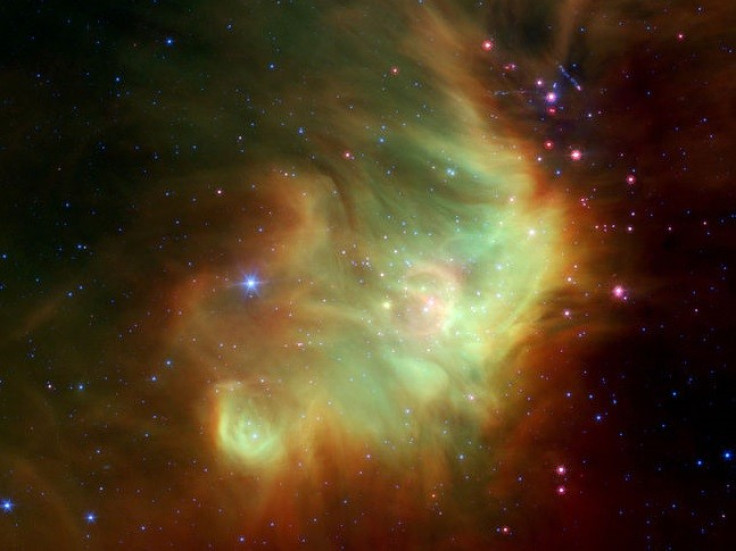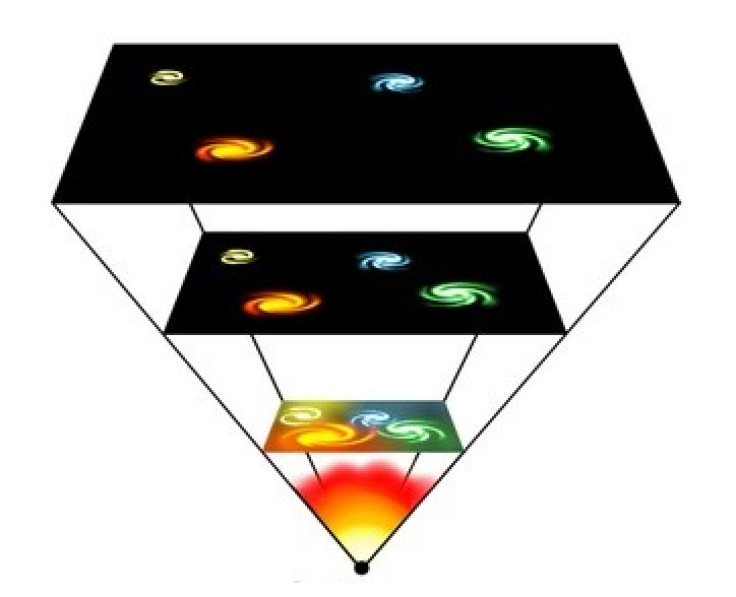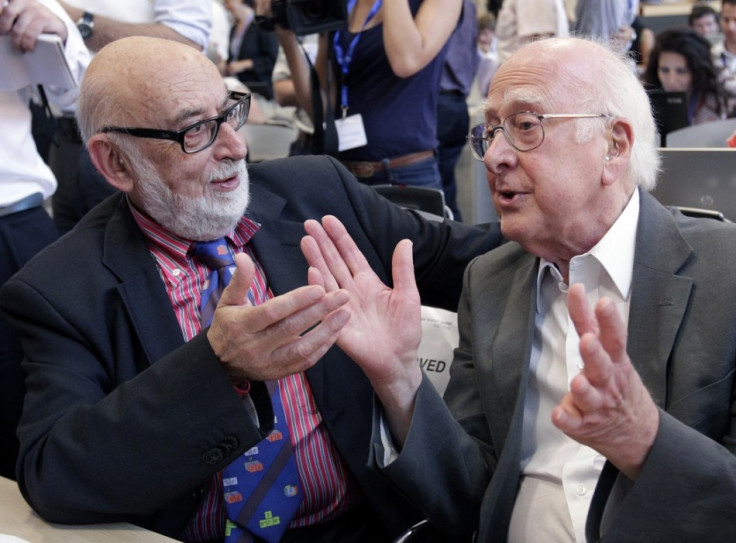Collapse of Universe 'More Likely Than Ever And May Have Already Started'

The collapse of the universe is more likely than previous calculations have estimated and may have already started, experts have said.
Researchers at the University of Southern Denmark have said their calculations confirm the universe will collapse one day - they just do not know when. They said it could happen any time from tommorrow to a billion years from now.
Explaining what will happen when the universe collapses, the experts said every tiny particle will become extremely heavy - billions of times heavier than they are now. This change in weight will squeeze all material into a small and extremely hot heavy ball and the universe will cease to exist.
The process whereby this happens is similar to when water turns to steam. The 'phase transition' - the process of the universe collapsing - will start if a bubble is created where the Higgs-field associated with the Higgs-particle reaches a different value to the rest of the universe.
The Higgs field is believed to be everywhere, so it affects the vacuum of empty space-time in the universe. The mass of the Higgs is related to how stable the vacuum is.

If the value of the Higgs particle results in a lower energy - and if the bubble is large enough - it will expand at the speed of light, causing all particles to get much heavier. They will then be pulled together, ending the universe.
Jens Frederik Colding Krog, from the Centre for Cosmology and Particle Physics Phenomenology (CP3), said: "Many theories and calculations predict such a phase transition - but there have been some uncertainties in the previous calculations. Now we have performed more precise calculations, and we see two things: Yes, the universe will probably collapse, and: A collapse is even more likely than the old calculations predicted.
"The phase transition will start somewhere in the universe and spread from there. Maybe the collapse has already started somewhere in the universe and right now it is eating its way into the rest of the universe. Maybe a collapsed is starting right now right here here. Or maybe it will start far away from here in a billion years. We do not know."
However, the authors of the study, published in the Journal of High Energy Physics, also note that they may one day be proven wrong.

The search for new particles is ongoing and intense. The Higgs particle was only discovered a few years ago and has since opened up a whole new field of research. Some scientists at CP3 say they believe the Higgs particle is not an elementary particle but is made up of even smaller particles called techni-quarks, while the theory of super symmetry predicts the existence of currently undiscovered particles.
Authors also point to the Big Crunch theory. This is based on the Big Bang Theory, which says the universe was formed after the Big Bang ejected material out into the universe from one small area and that this expansion is still happening.
These theory suggests that when the expansion stops, the material will begin to attract each other and will eventually merge into a small area again.
"The latest research shows that the universe's expansion is accelerating, so there is no reason to expect a collapse from cosmological observations. Thus it will probably not be Big Crunch that causes the universe to collapse," Krog said.
© Copyright IBTimes 2024. All rights reserved.







